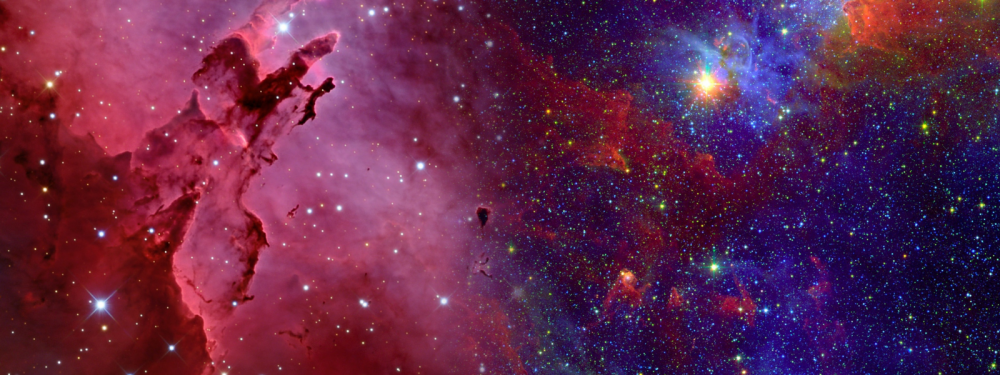Space is getting closer
The Monthly Notices of the Royal Astronomical Society of Oxford University Press has published an article written by researchers from the Department of Physics at the School of Humanities and Social Sciences. The publication – “Impact of rotation on the evolution of convective vortices in collapsing stars” was written by NU Associate Professor Yernazar Abdikamarov, French astrophysicist, Professor Thierry Foglizzo and Olzhas Mukazhanov, 4th year NU physics student.
In the interview, Olzhas told us about his research and shared his thoughts on why space exploration is important for everyone.
Olzhas, can you please tell us about your research?
Our paper is a result of joint study conducted by Professor Yernazar Abdikamarov, Professor Thierry Foglizzo and myself. Our research was about one particular aspect of sound in rotating collapsing stars. The professor’s previous work was concerned with a non-rotating case, and in the recently published paper we investigated how rotation would affect the results.
This research is partly theoretical and partly numerical. We analyzed a rather idealized model in order to focus our attention primarily on the impact of rotation while ignoring many other physical processes. So, our results will complement more detailed numerical simulations.
Space exploration can be incredibly expensive, very often taxpayers are questioning their governments whether such projects should be funded at all. What would you answer to this question?
I think that people should study space. I understand the view that astronomy does not address real problems in our world and, therefore, it is practically useless. But I disagree. There are aspects in studying astrophysics that can be really helpful. For instance, some astrophysicists study the Sun and its direct effects on the Earth. Also, background knowledge in astronomy is practical in other areas such as space engineering: it allows rocket engineers to navigate in a complex space structure and to predict orbits of their interest. Even mathematical analysis used in astronomy can be translated to other branches of science because math is ubiquitous. That and many other examples are the reasons why I believe that space exploration is worth funding.
What or who inspired you to study astrophysics? Does this interest stem from your childhood, or was it a conscious choice of profession?
There are many interesting popularizers of astronomy like Carl Sagan, Neil deGrasse Tyson or Stephen Hawking. Still, I have not watched them much in my childhood and so my inspiration does not come from them. Neither have I been motivated by books or movies.
Maybe, I got hooked by the scale of things in space. As a child I enjoyed mysteries, be it a detective story or a paranormal activity. But when I started studying physics, I lost interest in supernatural stuff, and the cosmos remained the closest (because you cannot ignore it as a child) thrilling thing connected to reality. However, it was during my sophomore undergraduate year when I decided to study astrophysics more seriously. I took the General Relativity course and then I approached Professor Abdikamalov with a project proposal. I also have some philosophical interest in space. I like to “space out” and think about the big Universe and our small place in it.
What are your short and long term plans?
My short-term plans are to finish a follow-up project with Professor Abdikamalov and to enroll into a Master’s degree. Regarding the long-term goals, they look quite common for a person who wants to be a scientist: I am going to get my PhD, work as a postgraduate fellow, and eventually land a professorship position. Then, I want to continue working on projects in a more independent manner and teach/mentor future generations of scientists.


